#monuments of the Crimea
Explore tagged Tumblr posts
Text

Sevastopol 1986: Monument to Sunken Ships.
Crimea, Ukraine.
#vintage ukraine#black sea#1980s#vintage photo#crimea#retro#sea#monument#20th century#1986#sevastopol#vintage
156 notes
·
View notes
Text

Monument in Fraternel Cemetery of Sevastopol, Crimea, Ukraine
Russian vintage postcard
#briefkaart#photography#vintage#tarjeta#russian#postkaart#postal#photo#sevastopol#postcard#historic#carte postale#monument#ephemera#fraternel#cemetery#sepia#ansichtskarte#postkarte#crimea#ukraine
25 notes
·
View notes
Photo
100 years ago:

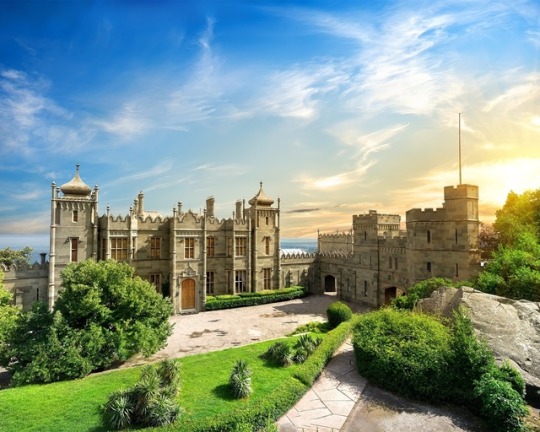
Vorontsov Palace, Yalta, Crimea, Russia
#ukraine#patrimoine#carte postale#chateau#russian#old#architecture#schloss#russia#vorontsov#vintage#yalta#castle#photography#monument#palais#postcard#crimea#photo#palace#alupka
180 notes
·
View notes
Text


Vice President Harry S. Truman playing the piano as 20-year-old actress Lauren Bacall looks on at the National Press Club in Washington, D.C., on February 10, 1945. Later in life, Truman would tell a biographer that: "My choice early in life was either to be a piano player in a whorehouse or a politician -- and, to tell the truth, there's hardly a difference."
At roughly the exact same time, approximately 5,259 miles away from Washington, D.C., the big three Allied leaders of World War II -- British Prime Minister Winston Churchill, Soviet leader Joseph Stalin, and President Franklin D. Roosevelt (whose health was rapidly failing) -- were wrapping up their monumental summit at the Yalta Conference in Crimea to discuss plans for the post-war division and occupation of a defeated Nazi Germany.

Two months later, on April 12, 1945, President Roosevelt was dead and Truman succeeded to the Presidency after his brief Vice Presidency. Before April was over, Benito Mussolini and Adolf Hitler were also dead, the United Nations had been officially established, Allied troops began finding and liberating concentration camps, and the war in Europe ended with the unconditional surrender of Germany in early May. All of these remarkable historic events occurred within a matter of weeks, and sometimes just a few days or even a few hours apart.
#History#Presidents#World War II#World War II History#Yalta Conference#Harry S. Truman#President Truman#Vice President Truman#FDR#Franklin D. Roosevelt#President Roosevelt#Winston Churchill#Joseph Stalin#Allied Powers of World War II#Allies of World War II#Allied Leaders#United Nations#Death of Franklin D. Roosevelt#FDR's Death#Adolf Hitler#Benito Mussolini#Surrender of Germany#V-E Day#Axis Powers#Lauren Bacall#Yalta#WWII#WWII History
56 notes
·
View notes
Text
Anyone who wants to understand Russian history should ignore Russian President Vladimir Putin. But anyone who wants to understand Putin’s strategic aims should pay close attention to his reading of history. The Russian president’s long lectures and essays on Kyivan Rus and World War II are not random tangents but rather the centerpieces driving his regime’s aggression against Ukraine. The Kremlin’s efforts to impose its reading of history on Ukrainians living under occupation reveal the driving motives of this war, as well as its continued objectives.
Against the backdrop of the uncounted—and uncountable—civilian deaths, mass deportations, and domicide across the occupied territories of Ukraine, it might seem trivial to focus on historical memory. But while it is difficult to take one’s eyes off the satellite images of mass graves in Mariupol, if we fail to grasp the broader grammar of Russia’s war against Ukraine, then we will also fail to recognize the broader ambition of Russia’s war efforts: the deliberate annihilation of Ukrainian identity.
Russia’s strategic deployment of historical propaganda in occupied Ukraine involves a comprehensive effort to “Russify” the local populace, leveraging educational, cultural, and military instruments to erase narratives of Ukrainian history and culture.
Those who resist this erasure are themselves destroyed, often physically. In all of the occupied territories, Russian forces arrived with a list of reportedly patriotic individuals to be captured; tortured; and, if they did not break, executed. From the very beginning, as Putin made clear in a June 2021 essay titled “On the Historical Unity of Russians and Ukrainians,” Russia’s full-scale invasion was intended as a genocidal war.
Genocide aims at the annihilation of the identity and existence of a specific group—in this case, Ukrainians. The crucial aspect of identifying genocide is the intent behind these actions, which distinguishes it from other forms of violence. Evidence of the Kremlin’s destructive intent is overwhelming. And it is overwhelmingly delivered in the language of history.
Upon taking control of the Kherson and Zaporizhzhia regions in 2022, Russia launched an aggressive cultural propaganda campaign characterized by the declaration of annexation anniversaries as national holidays, the standardization of cultural practices to align with Russian norms, the establishment of historical propaganda museums, and the re-Sovietization of street names and monuments. These endeavors were aimed at rapidly embedding the occupied territories within the broader Russian cultural and legal fabric, a strategy reminiscent of Russia’s annexation of Crimea and unlike the more fragmented methods employed in the so-called Republics of Donetsk and Luhansk in eastern Ukraine after 2014.
In regions where local resistance is more robust, such as Melitopol and Berdyansk, there is an intensified effort toward cultural and educational Russification. The formation of militarized youth groups—including the Yunarmiya (Young Army), a military-patriotic movement for children and youth initiated by Russian Defense Minister Sergei Shoigu in 2016, and Eaglets of Russia—is widespread, but the scale and visibility of such programs vary in accordance with the strategic military value of each region to Russia. The nature and intensity of the propaganda varies as well, with a pronounced emphasis on Soviet-era narratives in Donetsk and Luhansk, which were likely deliberately crafted to align with the region’s recent historical narratives and multicultural identities.
While the techniques to suppress Ukrainian identity may adapt, the core objectives of Russian informational campaigns are constant. These efforts relentlessly accentuate the regions’ shared historical and cultural roots with Russia, praising Soviet accomplishments and East Slavic heritage.
The Kremlin’s agenda aims to replace Ukrainian identity with something different—something localized—that can then be subsumed into a broader pan-Russian narrative. To do so, it uses culture and education as weapons of war. This strategy includes mobile libraries, guarded by armed militias, that distribute Russian books and educational resources while destroying Ukrainian books.
Amid this evident historical manipulation and cultural destruction, Russian propaganda distributed in the occupied territories positions the Kremlin as a protector of historical truth, using this stance to propagate narratives conducive to its political and ideological ends. It paints Western and Ukrainian histories as distortions that were deliberately aimed at destroying Russian identity—which the Kremlin argues is the true identity of Ukrainians.
The Khersonshchyna cultural project in the occupied Kherson region, for example, claims to expose Ukrainian history as a series of lies and promotes militaristic Russian myths with the aim of “restoring historical justice” and “curbing the spread of lies.”
Through the adoption of Russian curricular materials, educators, and syllabi prioritizing Russian over Ukrainian heritage, occupation authorities seek to transform residents’ identities, downplaying Ukrainian heritage in favor of a Russian outlook. Russian academics have created an Orwellian 98-page glossary of new correct cultural, historical and social terminology to be enforced in Ukrainian schools on the occupied territories. In the Donbas, organizations such as the Russian Center have produced pseudo-historical doctrines to justify Russia’s occupation. The center, which is funded by the Russian World Foundation, has held a number of festivals centered around the idea that the Donbas is Russia and that Russian culture is inherent to the Donbas.
A common thread in the historical propaganda is the idea that an injustice (Russia’s separation from the lands of what it calls the Donbas and Novorossiya—meaning “New Russia”) has been resolved by the invasion. In September 2023, on the anniversary of the pseudo-referendums held in four newly occupied territories in eastern Ukraine, schools in the Zaporizhzhia region held events to celebrate “reunification with the Russian Federation,” which was referred to as a “restoration of historical justice.” In his state of the nation speech in February 2023, Putin declared the “revival” of the cultural sphere in the occupied territories to be a priority for reestablishing peace. He emphasized the importance of restoring cultural objects to forge a connection across time, asserting that this effort would integrate the local population into the “centuries-old and great Russia.”
In addition to promoting claims of historical restoration and Russian greatness, the occupying forces are systematically undermining Ukraine’s historical legacy. Their strategies extend beyond suppression to the outright destruction and appropriation of Ukrainian heritage. In 2022, the Russian government introduced legislation to legitimize the seizure of items related to Ukrainian cultural heritage. This law permits the inclusion of historical artifacts from occupied regions in the Russian Federation’s registry, effectively erasing their Ukrainian provenance.
The scope of this cultural plunder is vast, with the Ukrainian government reporting that more than 15,000 artifacts have been removed from Kherson alone. Other significant looting pertains to Scythian gold dating back to the 4th century B.C., which was stolen from the Melitopol Museum of Local Lore. That museum and the A. I. Kuindzhi Art Museum were also stripped of their valuable collections. A so-called Ministry of Culture of the Kherson Region has facilitated what the Russian occupiers term the “evacuation” of these items to the Crimean city of Sevastopol, disguising acts of looting as preservation. Their actions and justifications draw obvious parallels with previous examples of imperial looting, such as the British plunder of African artifacts, also carried out under the guise of “evacuation.” Ukrainian archives have also been targeted, with significant portions of the holdings at the regional State Archive of Kherson confiscated.
At least 14 memorials commemorating the victims of the Holodomor—a devastating famine lasting from 1932-33 that was induced by Soviet policies and used to pacify Ukrainian national identity—were dismantled in the communities of Oleshky and Ivanivka in Kherson Oblast. The destruction of these monuments is a further illustration of the erasure of Ukrainian history, especially given that this particular historical episode reveals an ongoing pattern of genocide.
The first deputy chairman of the Kherson Regional Council confirmed these reports, but the occupation administration dismissed the memorials as “tools of manipulation” that were fostering hatred toward Russia.
As they obliterate Ukrainian historical memory, Russian forces are actively reinstalling Soviet-era monuments which were previously removed in Ukraine’s decommunization efforts, especially statues of Lenin. In so doing, the Kremlin is trying to restore a (mis)imagined past of Soviet-Russian greatness and ownership over Ukraine. It is a past that nobody asked them to bring back, but one that will have grave consequences for Russia and Ukraine’s future, given that the indoctrination efforts are most targeted at children.
When Izyum came under occupation in 2022, the establishment of children’s education and cultural centers was prioritized, and such institutions were up and running within weeks. Leveraging educational reforms, patriotic education, and youth organizations, the occupation authorities worked quickly and efficiently to instill a sense of Russian identity among young Ukrainians.
These actions are not only aimed at reshaping the cultural landscape, but also at securing future generations’ allegiance to Russia, often with a clearly militarized agenda, as seen in educational initiatives such as the “Lessons of Courage,” special classes held as part of the school curriculum that glorify the military achievements of the Soviet Union and Russia. These programs include interactions with Russian veterans and encourage expressions of support for current soldiers, further integrating military values into the educational experience.
The establishment of cadet schools in the occupied territories, facilitated through agreements with Russian educational and military authorities, has formalized the militarization of youth, preparing them for possible involvement in future conflicts.
Patriotic education extends beyond the classroom and into extracurricular youth movements and thematic events. Since 2022, in the occupied territories of southern Ukraine, branches of national Russian youth organizations such as Yunarmiya have been established alongside regional military patriotic movements such as the Youth of the South.
Participants receive professional military training, supported by veterans of the Russian Armed Forces and members of the military veterans’ organization Combat Brotherhood. The training includes instruction in weaponry and military tactics. Upon completion, Yunarmiya members are often recruited into the Russian military. According to Andrey Orlov, the exiled Ukrainian director of the Center for Strategic Development of Territories, enrollment in this organization is compulsory in the temporarily occupied territories, with special services personnel frequently visiting educational institutions to engage children in military-themed games. The so-called Warrior Club in occupied Zaporizhzhia, which focuses on military indoctrination and preparation for young men nearing conscription age, highlights the extent of Russia’s commitment to this cause.
There is a grisly strategy behind Russia’s militaristic engagement with children in the occupied territories: to indoctrinate them into forsaking their national identity and to groom them to die for their new supposed motherland.
Despite Moscow’s extensive indoctrination efforts, there has been resistance. Officials from the temporarily occupied Luhansk region have reported recruitment difficulties to the Kremlin, noting a significant shortage of teachers in Russian language, literature, and history.
As Ukrainian teachers refuse to teach these subjects, educators are brought in from Russia, often housed in apartments confiscated from local residents. This considerable influx of Russian educators tasked with instilling a Russian-centric curriculum should also be seen as part of Russian demographic engineering efforts, deporting Ukrainians to Siberia and further, while bringing in Russian citizens to take their place.
Still, in the face of penalties and home raids, a notable segment of the population steadfastly refuses to enroll their children in Russian-administered schools, instead opting for home-schooling. The rejection of Russian educational mandates underscores the enduring spirit of Ukrainian identity and a widespread collective desire to preserve national consciousness. This resilience is also demonstrated by the hundreds of students who, despite the risks of retaliation, use VPNs to pursue their studies with Ukrainian universities and schools online, sustaining vital community ties.
Moreover, Ukrainians are countering attempts to expunge their cultural memory. Last November, residents in occupied areas followed the Ukrainian tradition of lighting candles in their windows to commemorate the Holodomor. Despite the perils, with Russian forces actively dismantling Holodomor memorials, many courageously shared images of these acts of remembrance via Telegram, in commitment to their history and identity.
The Kremlin’s Russification, historical falsification, youth indoctrination, militarization, and cultural manipulation reveal Russia’s true agenda. In keeping with Putin’s rhetoric since 2022, it is clear that Russia’s ongoing war on Ukraine is aimed not only at territorial control, but also at the eradication of Ukrainian national identity.
Faced with conquerors that view their national existence as a threat, the cultural resistance of Ukrainians in the occupied territories is not only a refusal to submit to Kremlin propaganda—it is an essential part of Ukraine’s survival.
57 notes
·
View notes
Text

Kazan Cathedral in St. Petersburg, Russia. Translation: Dreams come true if you're not an asshole

"Wave" by Aivazovsky is kept in the Russian Museum in St. Petersburg, Russia.
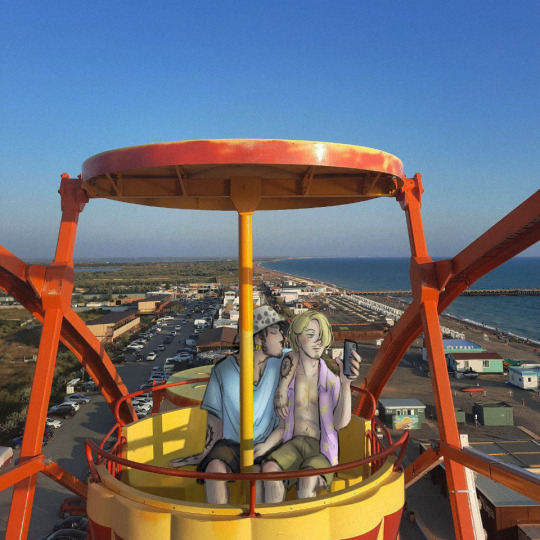
I can't remember the exact name of the village, but it's somewhere in Crimea, presumably south.

Kazan, Tatarstan, Russia. The photo shows a part of the Kul Sharif Mosque. Sanji holds echpochmak, a Tatar and Bashkir national dish, a bun with meat. On the territory of the Kazan Kremlin there was a New Year's fair, where I tried my first echpochmak with duck liver and finally fell in love with it.

A monument to flooded ships in my hometown of Sevastopol. I drew this because of a phrase I saw a long time ago. "Why do we need Paris and the whole world? Imagine me in Sevastopol kissing with you." "Зачем нам Париж и весь шар земной? Представь: я в Севастополе целуюсь с тобой."
Does it all make any sense? I don't know. I just decided to put northblueboys in Russian cities and go through my pics. Next year I'm going to visit Volgograd and I'm in great anticipation because I'll be able to see the Motherland Calling with my own eyes, like for real, like wow. (Also, @/sobakensyn's gift made me think of rusreal)
112 notes
·
View notes
Text
10 years old Anastasia Romanov Kremlin letter, [29 May 1912].



How is your health. It is hot here 30 degrees in the sun. I just got back from Neskuchnyi [1]. There was an outing in the morning and there was a worship service in Uspensky cathedral [2]. It was so sad to leave Levadia [3]. and I feel terribly sad that you are not here. Mari [4] and I live in the blue room Olga and Tatiana in the red, Nikita Fyodor and Andrei have tea with us and play here. Do you have a stick? Nikita is terribly naughty. It was terribly hot on the train.
“ Darling Shura,
Olga, Mama, Papa and Tatiana were traveling in a noble [5], like in Kiev. I feel better but sometimes bad again. Tomorrow there will be an inauguration of the monument [6]. Do you think you will come soon or not. They say that we will raise the Standard [7] on June 29, so you need to hurry. Now after Moscow I want to go to Levadia. We made a stop in Harkov. There were Ladies with Mama and Papa had reception of the deputies. Tatiana received a good gift today for her celebration [8]. We had a marvelous voyage from Yalta to Sevastopol [9], the weather was hot and marvelous in Sevastopol [10].
Will stay in touch. Big kiss to you. With love
1. The oldest park in Moscow.
Truly yours Anastasia
The envelope is plain because people like to read, when it says Moscow or Standard [11]. ”
2. Principal church in the Kremlin.
3. Tsarist summer palace in the Crimea.
4. Grand Duchess Maria.
5. Slang for a train cart for nobility.
6. Tsar Alexander III monument inaugurated on May 30, 1912.
7. Navy flag, the main Imperial yacht of the Tsar had the same name – The Standard.
8. May 29th is Grand Duchess Tatiana’s birthday.
9. Cities on the Black Sea.
10. A city in the Crimea.
11. The yacht, Standard.
23 notes
·
View notes
Text
Colonization is the same everywhere, but Russia uses in Ukraine all possible methods with excessive cruelty
She was reduced to tears by an Irish tour bus driver. Listen to his words:
We share the same pain and devastating experience.
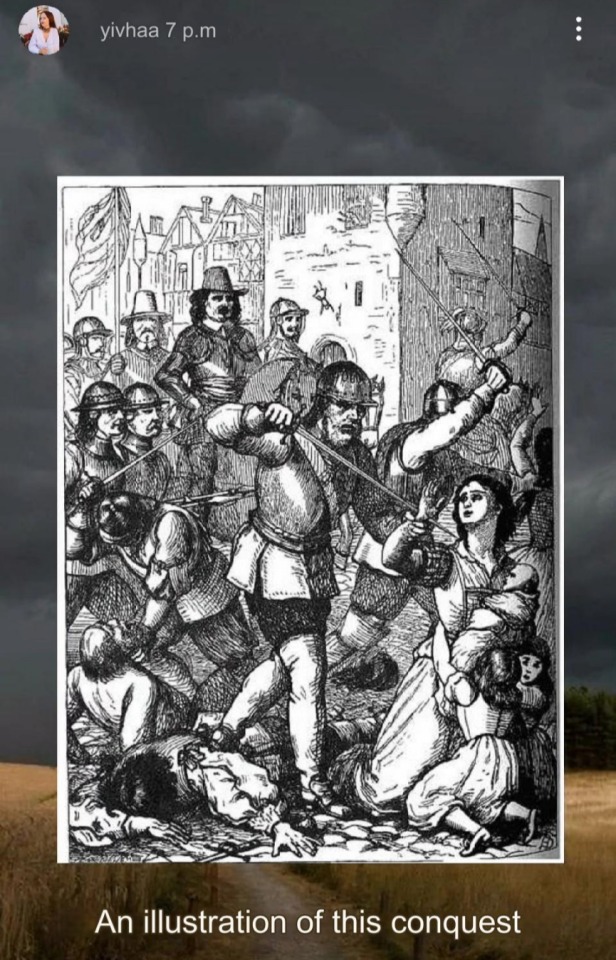

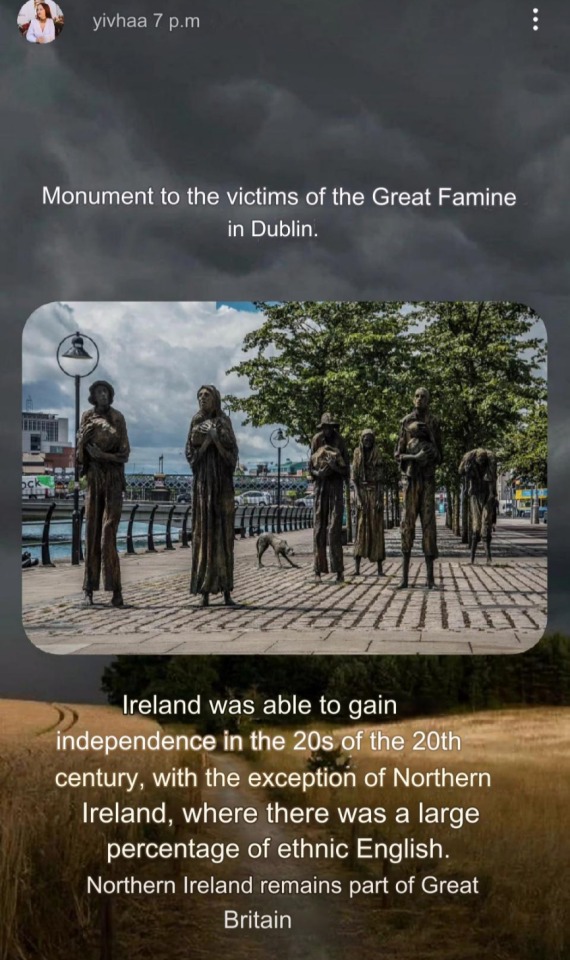
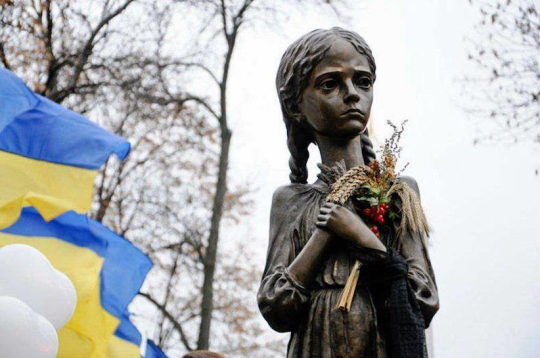
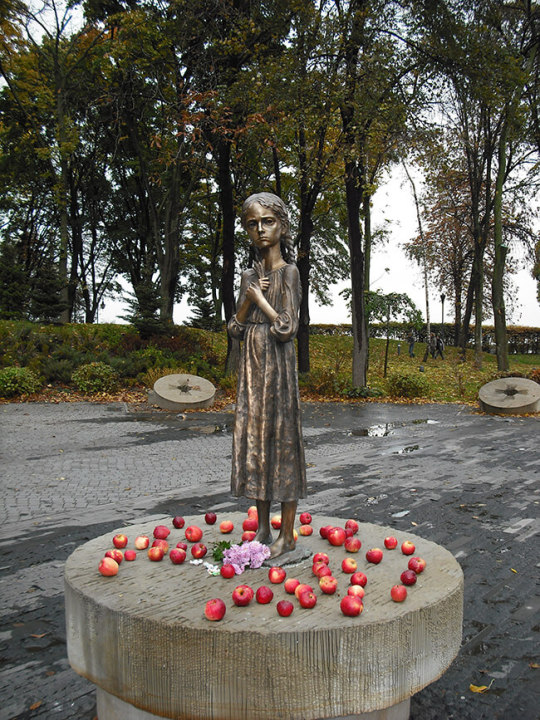
Monument to the Holodomor victims in Kyiv.
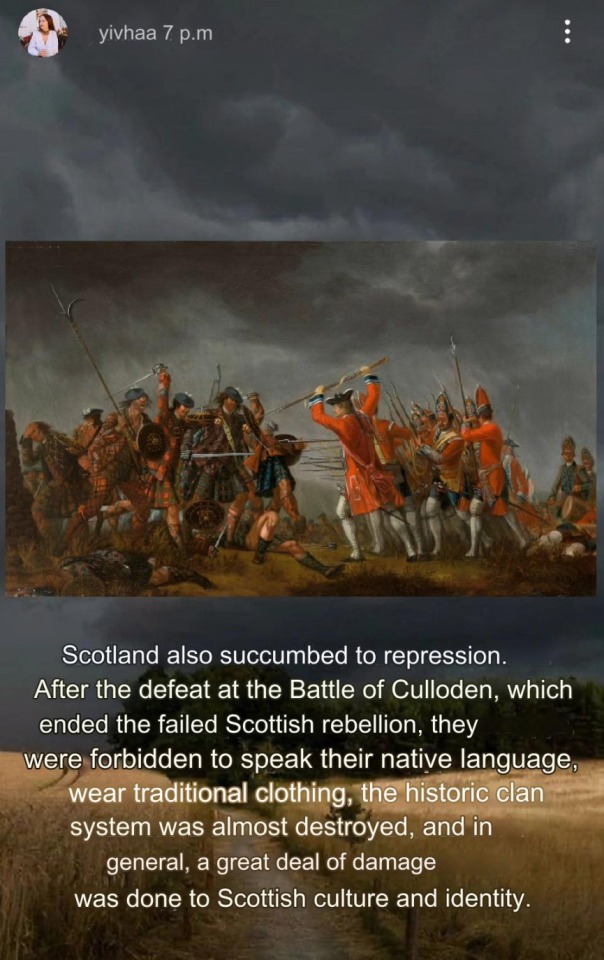

That's crazy to understand through history how many small and free nations have been living through colonization by bigger countries. Always not enough land, or power for them.
Throwback Russian crimes. Different time, but the Russian obsession with genocide is never-ending:
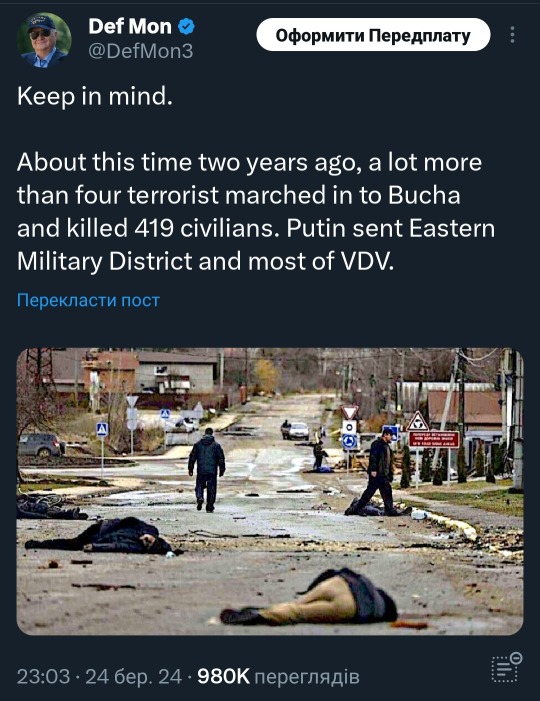

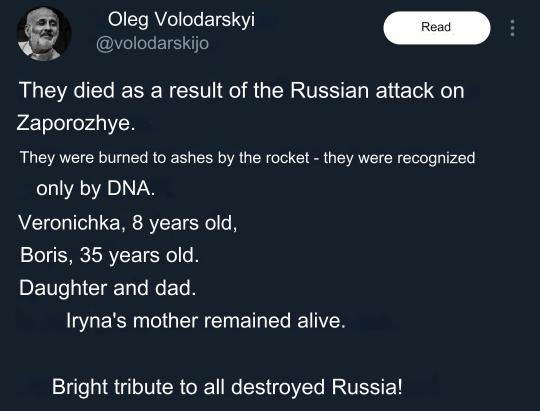

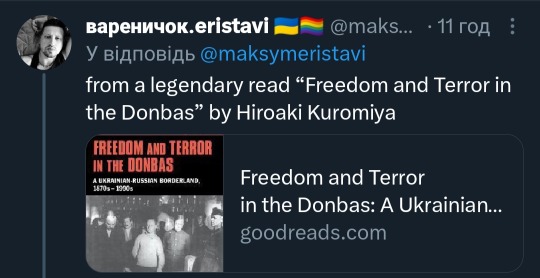
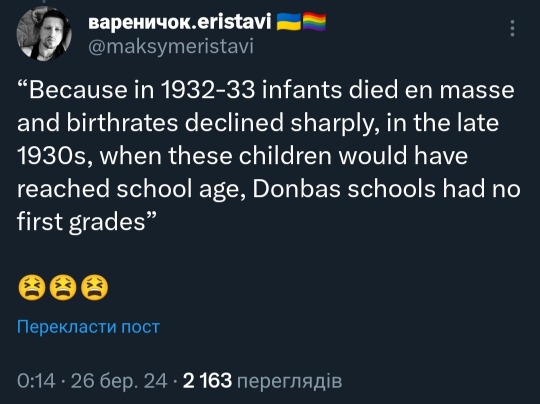
My Donbass. My Ukrainian Donetsk region. Always.

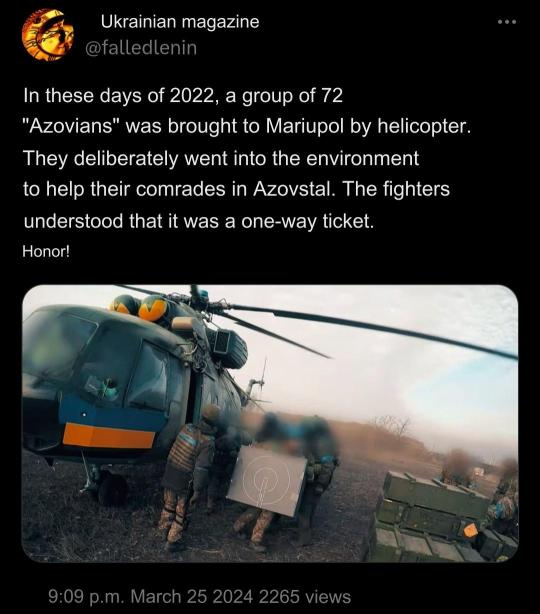
Glory to the Heroes of The Azov!

"Don't escalate" - someone said. Ukrainian army if they can, will target the enemy's equipment. And Ukrainians did that damage with the Ukrainian complex Neptun by the way.
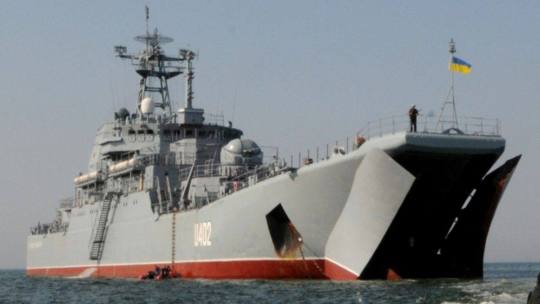
That ship was Ukrainian before the Russian occupation of Crimea. Don't worry when all our lands will be liberated, Ukrainians build so much more powerful ships that won't be used to kill us.

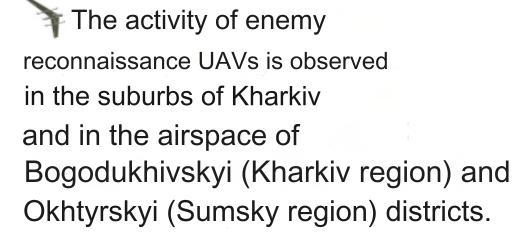
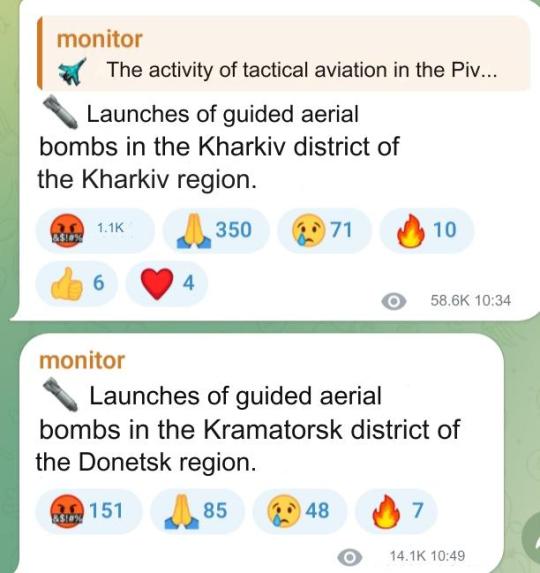
Ukrainians, please listen to air raid alarms. Russians don't stop even for one moment. Ukrainian lives matter. Be safe. Take care of yourself.
#ukraine#ireland#colonization#colonialism#colonial violence#russian colonialism#russia#arm ukraine#stand with ukraine#український tumblr#genocide#stop the genocide#russia is a terrorist state#russo ukrainian war#russian invasion of ukraine#russian terrorism#stop russia#russian imperialism#russians#russia invades ukraine#war in ukraine#support ukraine#ukranian#war is real#reality#history#important#united states#england#english
20 notes
·
View notes
Text
Sometimes I think that russia suddenly decided to finance HAMAS openly now just to not only shift the focus but also let people assume that Israel/Palestine war is the same kind of war as Ukraine/russia. We never had the same type of wars, and it makes me horrified to see people drawing parallels where are no parallels.
Also, it's hilarious to see the same people, who called Lithuania antisemitic for removing a monument of a nazi collaborator too late (oh i wonder why it was installed under soviet russia occupation🤔🤔🤔), calling Lithuania islamophobic now "for holding a rally in support of Jews killed by HAMAS (a terroristic organization financed by russia)". Truly you can't please everyone. A Lithuanian man, a Latvian woman and 18 Ukrainians were officially murdered by HAMAS - how can anyone expect Lithuanians to be okay with it? Lithuanians hold a rally in support of Palestine too, if you ever cared.
People, especially Palestinians, who perceive HAMAS as "liberators of Palestine" are fucking stupid. HAMAS is not liberating people, HAMAS is terrorizing them. Because of HAMAS people start hating Muslims, because of HAMAS actions Muslims are being deported and fired, not because of Israel propaganda or something. Whatever is financed by russia can not be good for Muslims, can not be good for Jews, can not be good for anyone - look at Ichkerians and Crimean Tatars. They are also Muslims, but for some reason I don't see many defenders of them. I wish I saw people writing "Free Ichkeria" and "Free Crimea" with the same enthusiasm.
I wonder if HAMAS supporters know that HAMAS kill not only people but also dogs, cats and cows. Dogs, so that they don't interfere with dealing with their owners. Cats? It's a mystery because a cat is a sacred animal to Muslims. Muhammad's life was saved by a cat that killed a snake, so since then. And still, they killed cats. The biggest mystery is why HAMAS killed milk cows? They didn’t drive them back to their hungry gas station, even though they had plenty of time, but they killed them. Each cow was shot in the head. And they didn’t mind the cartridges. They have enough money to buy ammunition and kill potential food - and leave this food where they kill it. So people logically assume Palestine is not that hungry and poor.
"HAMAS kills people but" - there can not be any "but". HAMAS kills people. End of the sentence. If you justify HAMAS, you don't support Palestine, you support terrorists. Here, in Eastern Europe, we still remember what Holocaust is.
40 notes
·
View notes
Text
I would like to draw your attention to the kind of information surge that Ukrainians have to live in:
1. a photo of a two-year-old child killed by a russian missile.
2. Jim Cummings praising zvyagintsev's films.
My sister tells me that people from the West always divide cinema and war. But I want the only thing that westerners will divided is russia.
I want to talk about zvyagintsev in a little more detail. In 2022, he gave an interview to anton dolin (this is the clown that Ridley Scott said fuck you). This interview perfectly illustrates how the so-called intellectual elite of russia is completely detached from the russian people, illustrates the terrible naivety, criminal blindness and stupidity of these people. For example, zvyagintsev says that the russians who remained in russia are hostages (oh, poor people, we from Ukraine can help with something). The mantra about the hostages is so deeply rooted in the consciousness of the so-called liberal russians. It protects them from the realization that their fellow citizens have turned into animals begging for blood. Then he says that you need to let this war into yourself (remembers Bucha and starts to cry. Ten points for acting) to accept the conflict and the words that a person tells you, because one day she will understand that she was wrong. He says that "it is not necessary to multiply the war, conflicting with people who support the war, it is necessary to listen to them." The great peacemakers, the russians, who do not want to multiply the war around them, have been turning a blind eye to theave been turning a blind eye to the annexation of Crimea and the occupation of Ukrainian territory, to the torture chambers and the sentences imposed on Crimean Tatars for eight years.
Then he asks: "Why didn't we react when we bombed Syria? Well, because it is far. And Ukraine is close and Ukrainians are close to us." That is, when Russia was razing Aleppo to the ground, it was okay, because you didn't have to pay for it, but when Ukraine was attacked and sanctions were imposed, it became inconvenient to keep silent. Remember, Syrian, the russian director does not care that his country bombed your cities, because you are not a neighboring country.
"I cannot agree with people who say that we should forget and ignore russian culture, people sitting in bomb shelters cannot think otherwise, but it will all pass." It will all pass. This cynical phrase just cracked me up.
"I don't understand to whom culture is to blame, to whom Rachmaninoff and our cinema are to blame." In front of all countries where you are your culture is used as a marker of conquest. How are the Pushkin monuments in Syria? How is the Mariupol theater is closed with a banner with Russian writers and Ukrainian artists that you want to own? Your culture is a cancer, it comes first and only death follows.
"We have nothing else to do but make movies." What about raising money for the Ukrainian Armed Forces, supporting the Ukrainian army, so that the war ends soon and Ukraine wins? No? Well, okay.
A russian director who shoots his new movie in Europe has the opportunity to do so, all he has to do is say I am against the war and all doors are open for you. Whereas some Ukrainian artists do not physically have this opportunity. At the moment, there are no Ukrainian films at Cannes, but there is a russian film. Who is to blame for a culture that shouts into a loudspeaker, trying to drown out the victim?
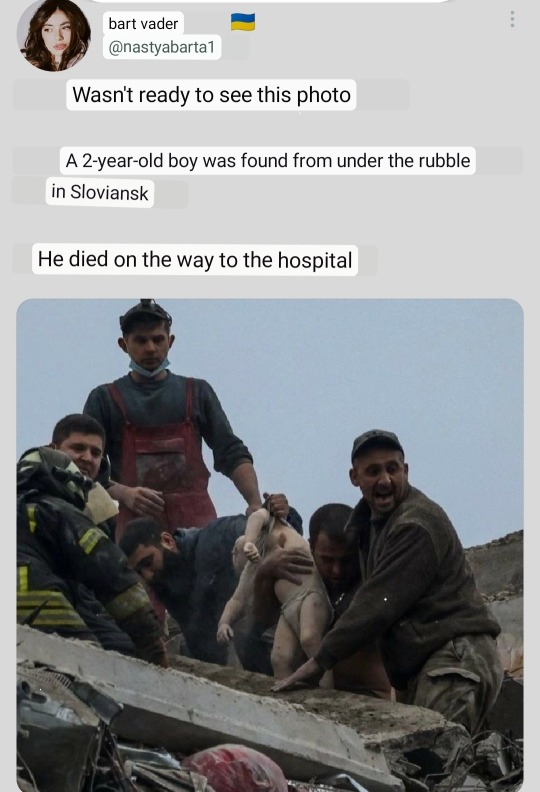

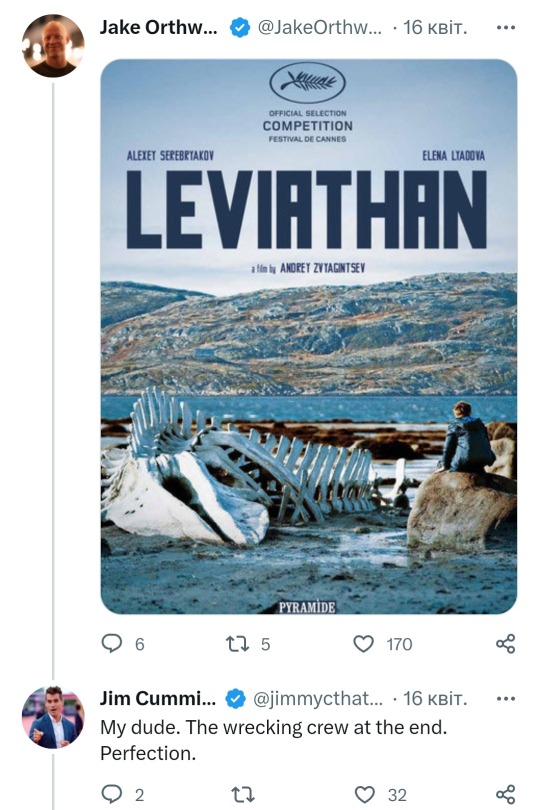
110 notes
·
View notes
Text
The Russians completely destroyed the Tavrian Chersonesus in Sevastopol, a UNESCO World Heritage Site

This is reported by "UP. Life" with reference to Evelina Kravchenko, a senior researcher at the Institute of Archeology of the National Academy of Sciences of Ukraine.
The researcher told about this at the III International Forum of the expert network of the Crimean Platform . She emphasized that the Russians are destroying original architectural monuments and erecting new buildings in their place.
"Now negative processes are taking place with the only monument of world importance, which we managed to nominate and include in the list of monuments in Crimea - Chersonesus Tavriysky ," said Evelina Kravchenko.
It is noted that in 2015-2016, the developers fenced off the archaeological remains located on the surface: towers, walls and columns with viewing platforms. Later, an amphitheater was built on the site of the ancient citadel, and it carries a load of about a ton on the original structure.
In addition, a significant part of the found artifacts was taken to Russia: frescoes, dishes, household items and icons. After that, the construction of the archaeological park "New Chersonese" began on the site of the remains of the necropolis.
"The Russians did not know anything about the geological situation at this place, so they began to remove the soil on the territory with ordinary excavators. Somehow they dug up an ancient spring there, so everything flooded ," shared Evelina Kravchenko.
Now, in fact, a new city has been built on the site of the archaeological remains. The archaeological park covers old finds, and a number of excavated objects were gradually moved and rebuilt elsewhere.
What's more, the Russians built St. Volodymyr's Cathedral where the settlement used to be. It is consecrated by the Moscow Patriarchate and subordinate to it.
What is known about the Tavrian Chersonesus
The ancient city of Chersonesus Tavri (translated from ancient Greek - "the city of the Sun God Horus") is located on the territory of the Heraklion peninsula of Crimea. This is the largest monument of Byzantium in the world.
Chersonesus existed 900 years before the creation of the Eastern Roman Empire. It was built in the 6th century. to n. is.
This historic city was one of the local centers of the Hellenic civilization, which originated in the Northern Black Sea region and later spread to Asia Minor and the Mediterranean.
The first archaeological park in Ukraine was created on the basis of Chersonesus Tavriyskyi. It is an object of cultural heritage of Ukraine.
On June 23, 2013, at the 37th session of the UNESCO World Heritage Committee held in Cambodia, Chersonesus Tavri and its choir (agricultural district) were included in the UNESCO World Heritage List.
After the occupation of Crimea by Russia, it became impossible to preserve the integrity of Chersonesus Tavriyskyi. In 2015, the Russian army poured concrete over the site of an ancient manor on Cape Chersonese. Until now, the occupation authorities are constantly destroying the historical monument and looting it.
#russian agression#ukraine#ukraine war#war#stop war#war crimes#stop putin#stop russia#russian terrorism#genocide
7 notes
·
View notes
Text

Monument of Eduard Totleben in Sevastopol, Crimea, Ukraine
Russian vintage postcard
#monument#sepia#photography#vintage#postkaart#ansichtskarte#ephemera#carte postale#postcard#russian#postal#crimea#briefkaart#sevastopol#ukraine#photo#eduard#eduard totleben#tarjeta#historic#totleben#postkarte
28 notes
·
View notes
Text

After prayer in the synagogue of Simferopol, Crimea, 1991
Simferopol was founded in 1784 and until the 1917 revolution it was the chief town of the province of Tavriya (Taurida) on the Crimean Peninsula. The Jewish community, numbering up to 20% of the total population in the 19th century, was comprised of native Krymchaks and Karaites as well as Ashkenazim from other parts of the Russian Empire. In 1941, Nazi occupiers massacred 14,000 Simferopol Jews outside the city. To this day, no monument has been erected in their memory.
66 notes
·
View notes
Text
Jamala presents an album dedicated to Crimea together with BBC Orchestra
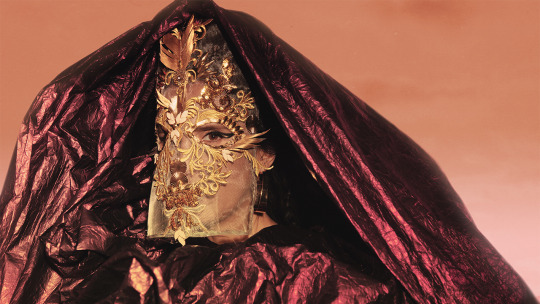
Ukrainian Crimean Tatar singer Jamala presents her new album QIRIM ("Crimea") together with BBC Philharmonic Orchestra. The live performance will take place on May 11 in Liverpool as part of the British-Ukrainian EuroFestival at Eurovision 2023.
QIRIM includes 14 ancient songs, each of which represents a certain area of the Crimean Peninsula and presents the local culture and language. More than 80 musicians joined the work on the album.
"Today, the language in which the compositions are written is on the verge of death, according to UNESCO. The people who created these records have been under threat of extinction for centuries. But is it possible to erase the memory of the monumental beauty of music, which was passed down from generation to generation?" — Jamala said.
EuroFestival is a Ukrainian-British festival at Eurovision 2023 dedicated to Ukrainian culture. It will take place from May 1 to 14 and will present 24 projects, 19 of which were created in collaboration between British and Ukrainian artists.
As part of the program, you will be able to see several installations of Soloveiko Songbirds, where nightingale figures will be presented in honor of each Ukrainian region. There will also be theatrical performances with the participation of Ukrainian artists, the project-unification of Liverpool and Kyiv ravers Rave UKraine and much more.
The BBC Philharmonic Orchestra is the national British symphony orchestra. It is the main radio ensemble of the British Broadcasting Corporation (BBC) and one of the leading symphony orchestras in Great Britain. The orchestra was founded in 1930.
• Source: Slukh | Translation from Google •
42 notes
·
View notes
Text
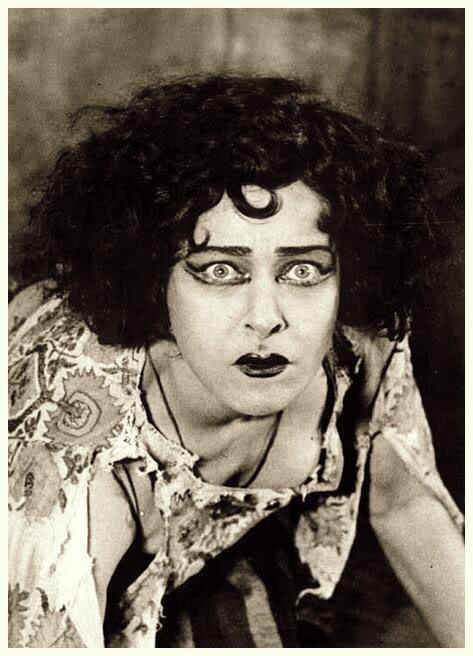
Silent film star Alla Nazimova.
A fascinating woman.
From her IMDB bio-
The grand, highly flamboyant Russian star Alla Nazimova of Hollywood silent films lived an equally grand, flamboyant life off-camera, though her legendary status has not held up as firmly as that of a Rudolph Valentino today. Alla Nazimova was born Miriam Edez Adelaida Leventon in 1879, in Yalta, Crimea, in the Russian Empire, to Jewish parents, Sonya Horowitz and Yakov Leventon. She was the third child in an abusive, contentious household. Most of her sad childhood was spent in foster homes or in the care of other relatives and she showed a strong penchant for outrageous behavior to cope. Nazimova also showed a great aptitude for music at a young age and began violin lessons at age seven. She changed her name to Alla Nazimova when she began appearing on stage–her father insisted on it, as “performing” was not considered respectable at the time. She began acting lessons at age 17 and joined Konstantin Stanislavski’s company of actors as a pupil of his “method style” at the Moscow Art Theatre. During that time she supported herself by being kept by rich, older men. A failed love affair led to her only marriage, to an acting student named Sergei Golovin, but they separated quickly. She grew discontented with Stanislavsky and later performed in repertory. She met the legendary Pavel Orlenev, a close friend of Anton Chekhov and Maxim Gorky, and entered into both a personal and professional relationship with him. They toured internationally throughout Europe with great success and came to New York in 1905, where Nazimova was saluted on Broadway for her definitive interpretations of Henrik Ibsen’s “Hedda Gabler” and “A Doll’s House.” Orlenev returned to Russia but Nazimova stayed. She made her screen debut with War Brides (1916), which was initially a 35-minute play. By 1918 she was a box-office star for Metro Pictures and completed 11 films for the studio over a three-year period. A torrid, stylish and rather outré tragedienne who played exotic, liberal women confronted by great personal anguish, she earned personal successes as a reformed prostitute in Revelation (1918), a suicide in Toys of Fate (1918) and dual roles as half-sisters during the Boxer Rebellion in The Red Lantern (1919), not to mention the title role of Camille (1921) with Rudolph Valentino. At the same time she maintained a strong Broadway theatrical career. In accordance with her rise in the film industry, she began producing her own efforts, which were bold and experimental–and monumental failures, although they are hailed as great artistic efforts today. Her Salomé (1922) was quite scandalous and deemed a failure at the time. The monetary losses she suffered as producer were astronomical. The Hays Code, which led to severe censorship in pictures, also led to her downfall, as did her outmoded acting style. She was forced to abandon films for the theater, scoring exceptionally well in Anton Chekhov’s “The Cherry Orchard.” She did return to films briefly in the 1940s in a variety of supporting roles, but she made these solely for the money. Nazimova’s private life has long been the subject of industry gossip. As a Hollywood cover to her well-known bisexual lifestyle, she coexisted in a “marriage” with gay actor��Charles Bryant for well over a decade. Her “Garden of Allah” home was the centerpiece for many glamorous private parties. She died in 1945.
11 notes
·
View notes
Text
youtube
Interview with "И грянул Грэм" where you can phone in and ask questions, or ask them through Telegram.
22:53 You once in August in an interview voiced that it would be nice and it would be worth creating a database of translations of the most common statements of Russian politicians and officials so that people around the world understood what they are saying in fact, they are a softened form of translation and at the Centre of Translation at the University of Vienna we want to create just such a project because we consider it to be a new type of translation. Is it still relevant for the Office of the President and how can you be contacted if this is interesting? Thank you.
Hello, Ksenia. Of course you can contact my assistant Максим [they're speaking in Russian] through "И грянул Грэм" and accordingly, the topic is very relevant. Translations are undoubtedly important, namely identical or authentic words that are spoken by certain representatives of official representatives of the Russian authorities are certainly important because they are blasphemous, they are absolutely obscurantist and they are absolutely aimed at the public opinion of other countries and that public opinion in European countries, first of all, be understood.
26:37 Mykhailo promised to give an interview from Crimea at the end of the 2023. It was like on the stream of Yulia Latynina. Will Mykhailo succeed?
Look, definitely. I will definitely in any case do a stream or an interview from Crimea undoubtedly because Crimea will be de-occupied. I really like it of course when you said that you will definitely be there on June 23, for example, or on July 23. Look, it seems to me that with the intellect of people who say this like this, there are a little problems. This is a war. War does not have… It is not a film that you go see in a cinemat at 16.00. Question, will it be on June 23 or July 23 or August 23 or at the end of the year. This is a war. But the fact that we will be in any case on the Yalta embankment - undoubtedly.
45:19 Marat asks: how does Mykhailo feel about Bulgakov, Pushkin, Vysotsky and the demoliton of their monuments in Ukraine.
The question absolutely sounds wrong. Please understand, it immediately asks, will the monuments be demolished. But what is a monument for a writer or a composer and so on? It's ridiculous. In fact you individually determine whether you need it from the point of view of your inner needs, do you need "The Master and Margarita" [a novel by Bulgakov], do you need "Theatrical Novel" [by Bulgakov], do you need "Flight" [a play by Bulgakov], "The Day of the Turbins" [a play by Bulgakov] or something like that or not. It's an individual need.
Of course, monuments are in fact the ideological influence of a particular country. Through the monuments of Pushkin, for example, Russia says, look, there is great Russian culture, and you are nobody, you're provincials, you're insignificant, that is, the monument solves another problem, not your individual consumption of a cultural product. I emphasise again, in this you're free, you can consume Pushkin, it doesn't matter. But a monument is the ideological influence of the country of origin of this or that cultural product, so learn to tell this apart.
But this will definitely not affect your choice of this or that literary object for reading. This is an obvious thing, right? If you want to listen to Tchaikovsky, you will listen, if you want to listen to Rachmaninoff, Prokofiev, you will listen, Rimsky-Korsakov, please. But in parallel, you'll listen to Vivaldi, right? You will make your own choice and not the imposed ideological product. It is very important to learn to tell this apart because when someone comes, look, you have demolished a monument to Pushkin, probably we can come to you to cut your children. Do you understand the absurdity of posing the question?
49:27 I generally evaluate people not according to their passport but by their individual actions. And I think this is right, ethnicity does not matter at all in whether you're a person or a non-human, this is an obvious thing.
52:18 References the film "Stalingrad" (2013) by Fedor Bondarchuk, and "Burnt by the Sun" (1994) by Nikita Mikhalkov.
52:41 Why Mykhailo doesn't go to the TV station «Дождь»?
Look, I want values not to be a word. If you adhere to some values, you must understand them. You can't take an ambivalent position on the war. You can't say that our [Russian army] boys are dying and after that throw a tantrum when this mistake is pointed out and instead of apologising continue to play this game that not everything is so simple. It doesn't work like that. That is, either there are values and then we are not hypocritical or values are a way of commercialisation. For me the first is acceptable, the second is not.
53:27 Our viewer writes that Oleksiy Arestovych actually performs the same job as an adviser to the Office of the President but without official status. Is that so?
Oleksiy Mykolaiovych today is a blogger, he comments on the war, he does it professionally and effectively and accordingly, he really works in the paradigm of the state information policy and so on, he is no longer an employee of the Office of the President, no doubt, but since he is an intellectual smart person and understands exactly the value of the word, then he certainly works in the paradigm of the state and state interests.
54:08 At the very end, probably a little personal question from the viewer, he said that in one of the interviews he heard that at the end of the war, Volodymyr Zelenskyy wanted to go to the sea and drink beer with his friends. What would Mykhailo want?
I just want an end to the war with minimal losses. That is, if we can minimise losses as much as possible. And the next it will be a large amount of work to punish the war criminals of the Russian Federation on one hand, this is after the war, and on the other hand, I think that there will be a lot of hard work to perpetuate the memory of people who gave their lives for their country. That is, not to erect monuments, that is to go to the family and pay tribute.
6 notes
·
View notes